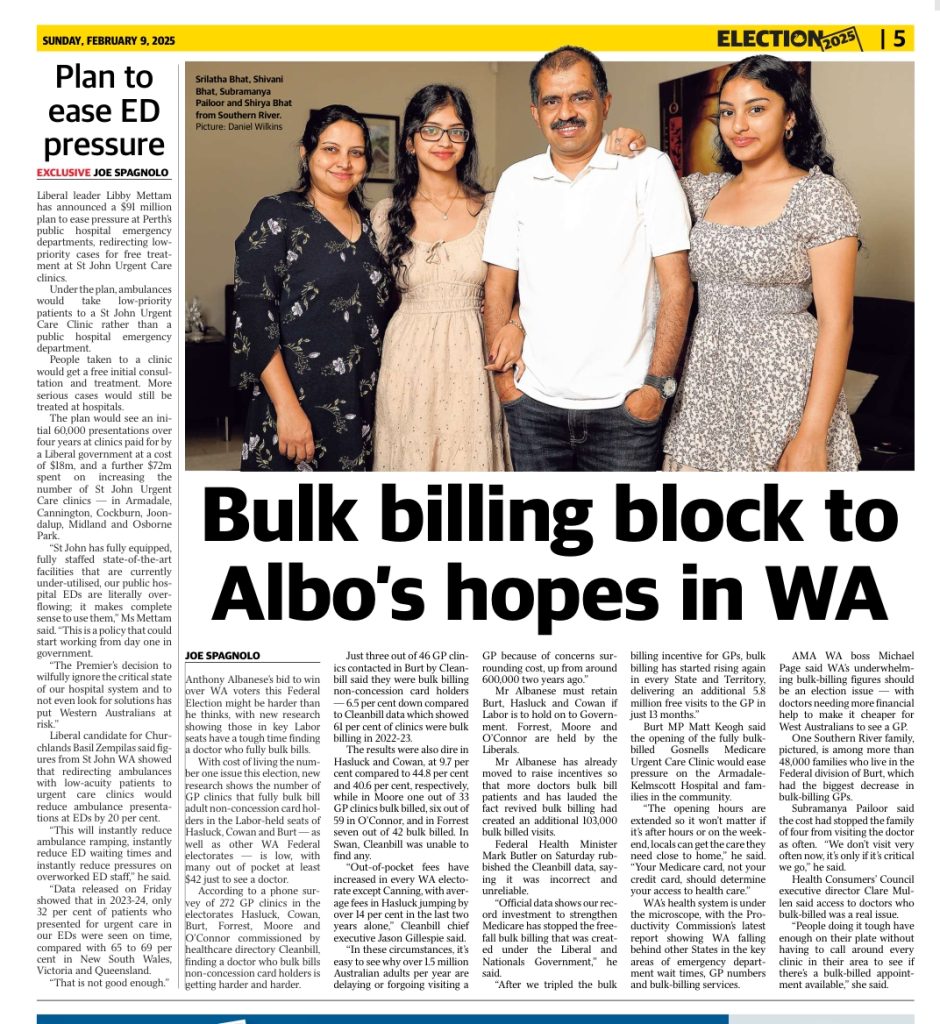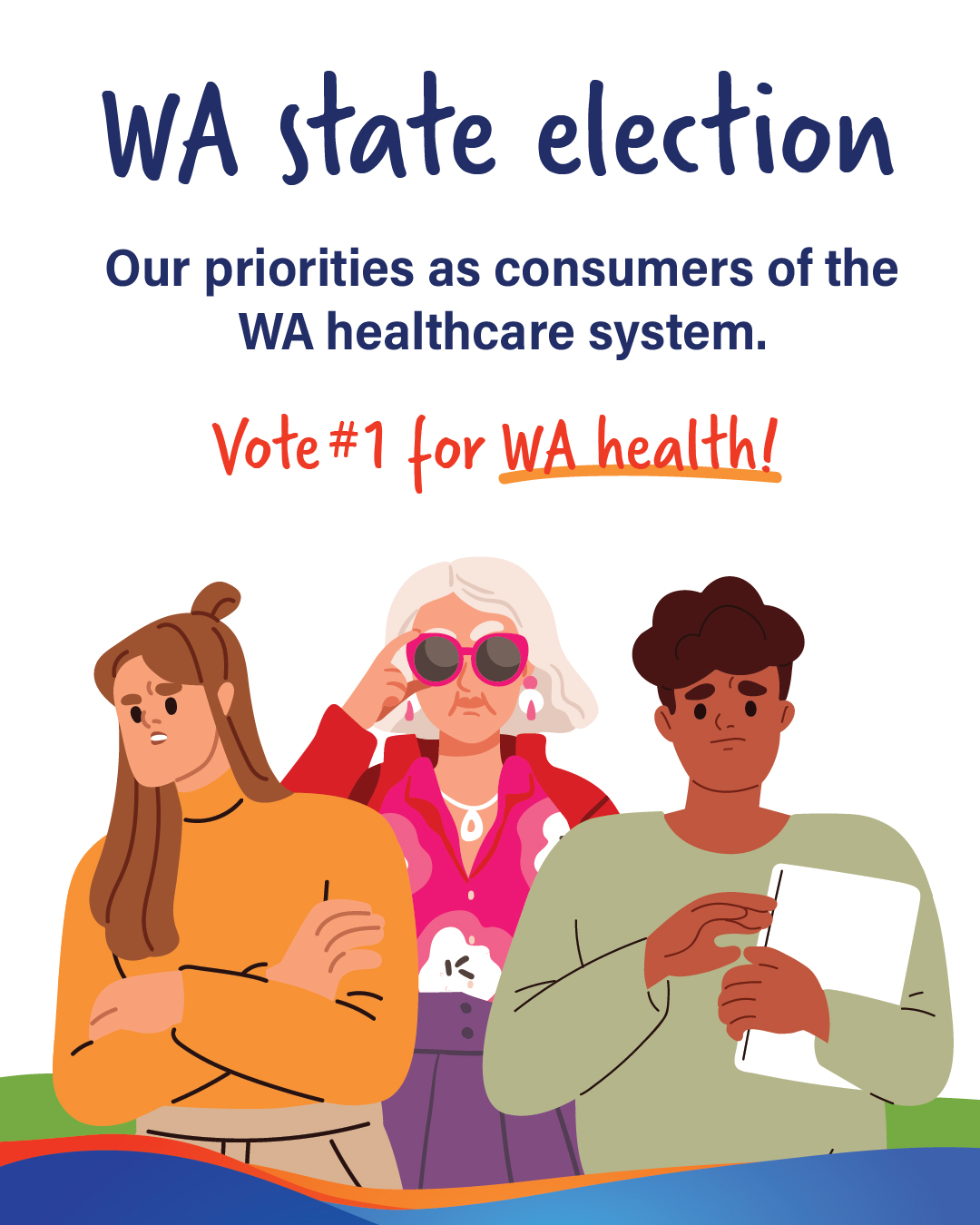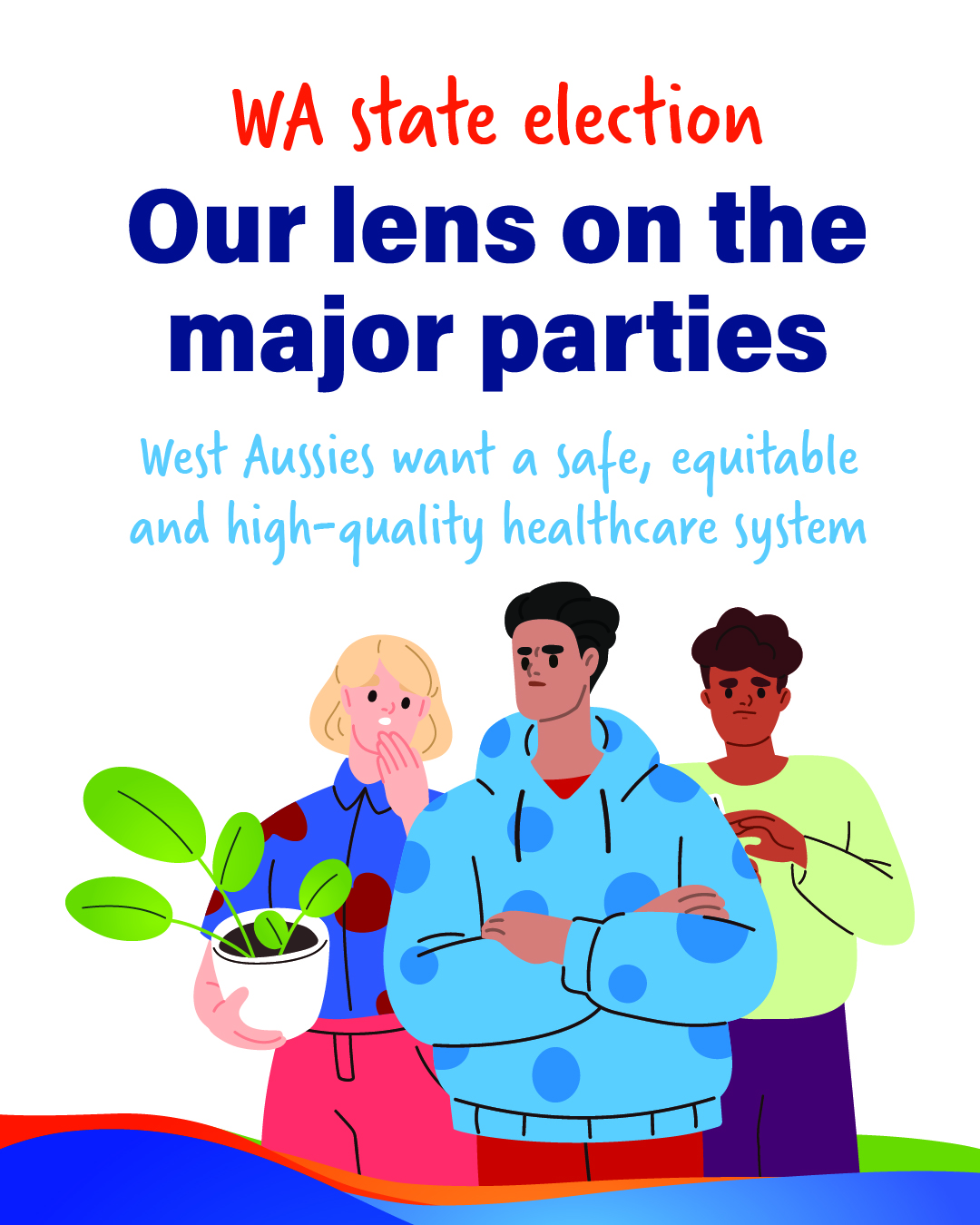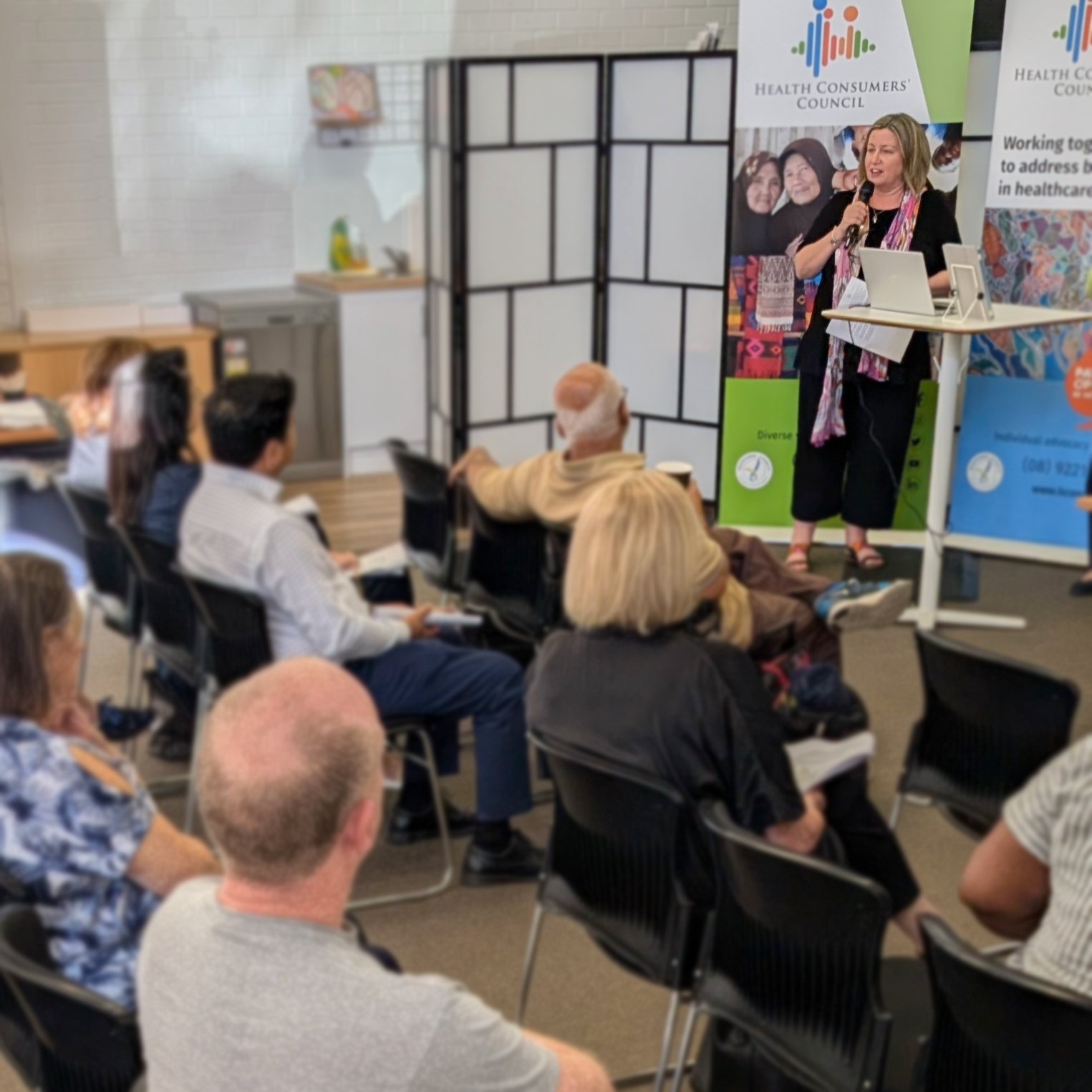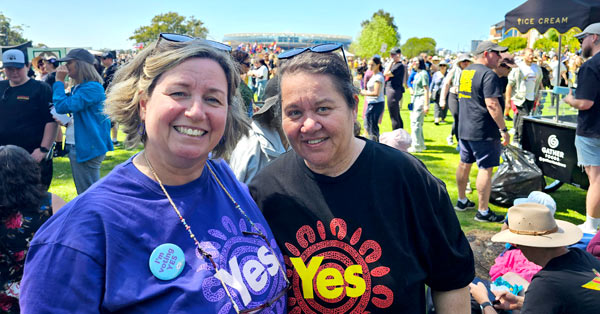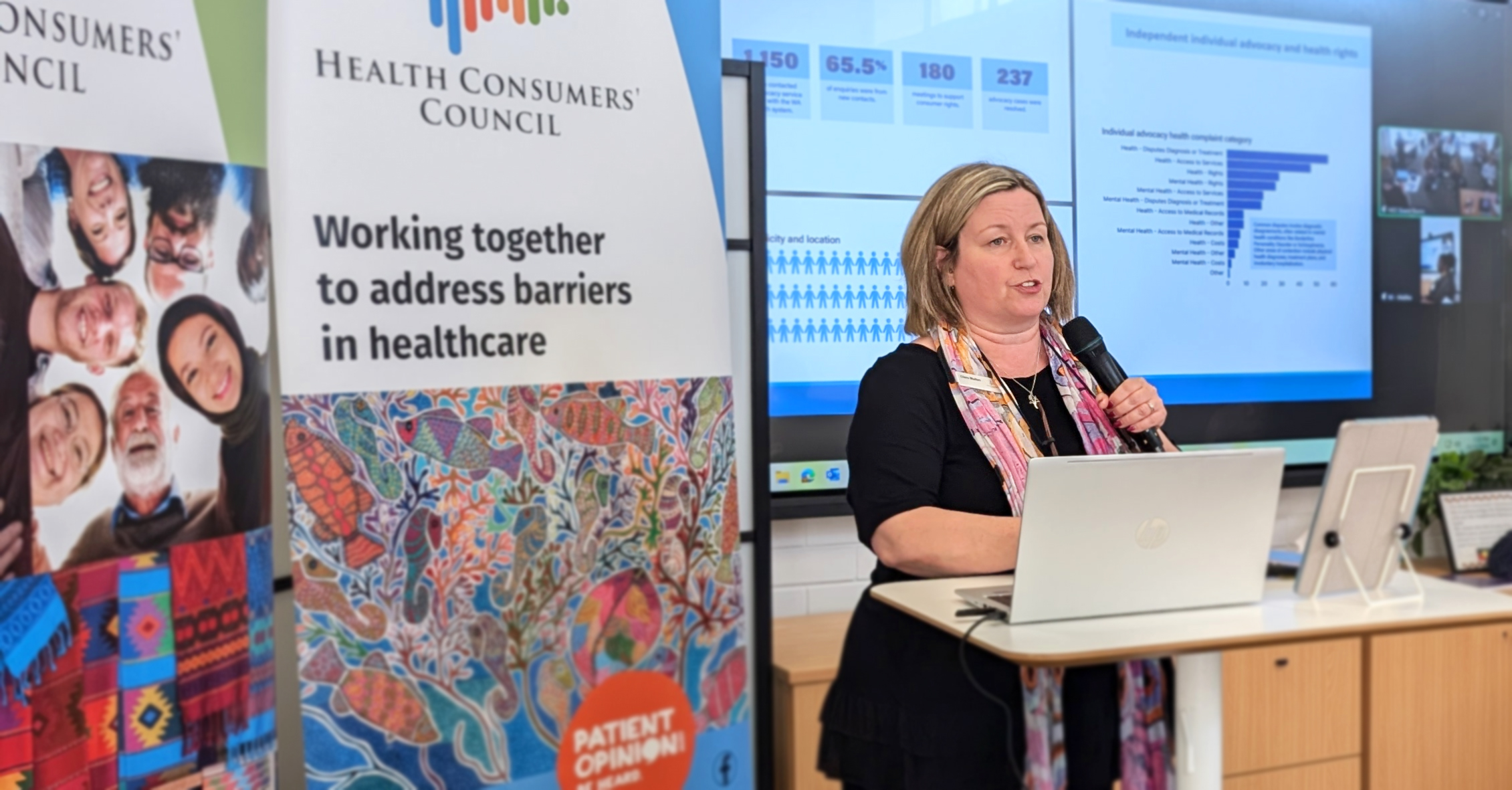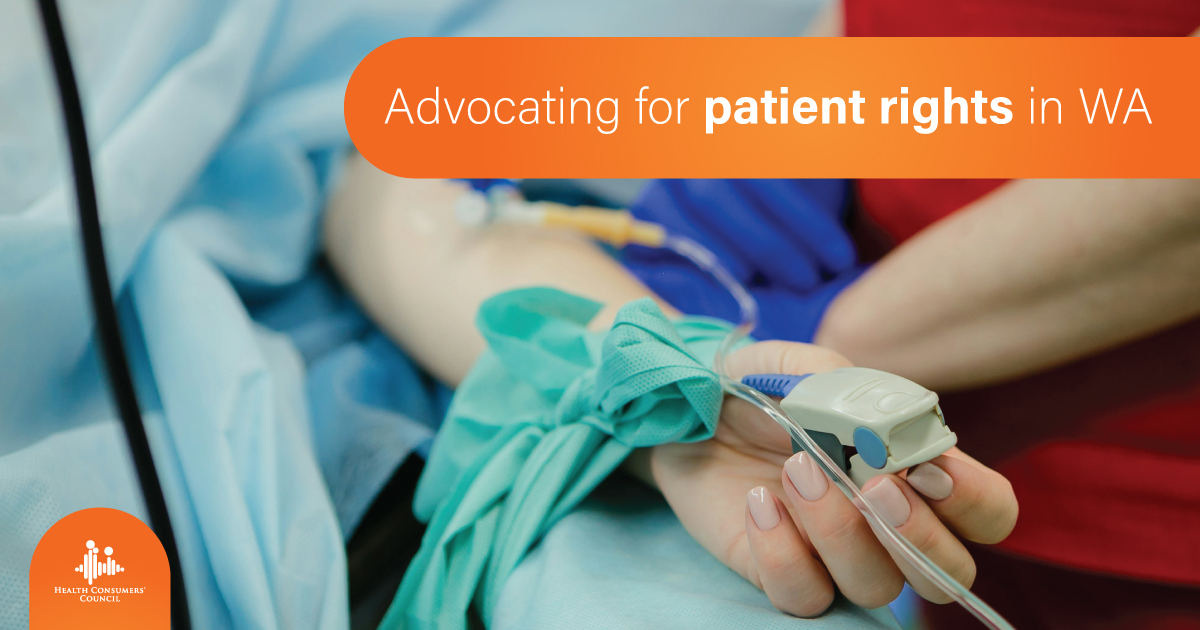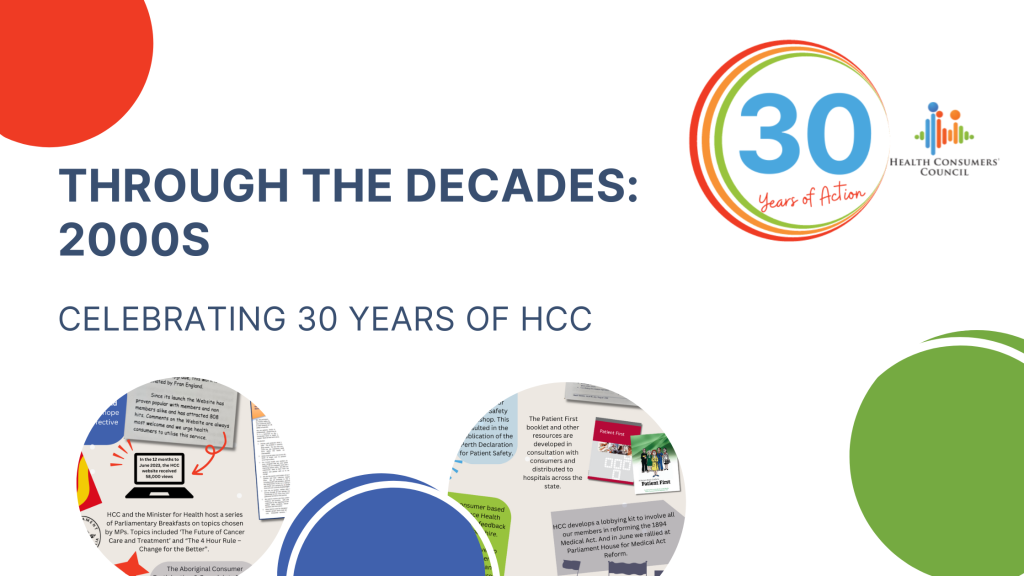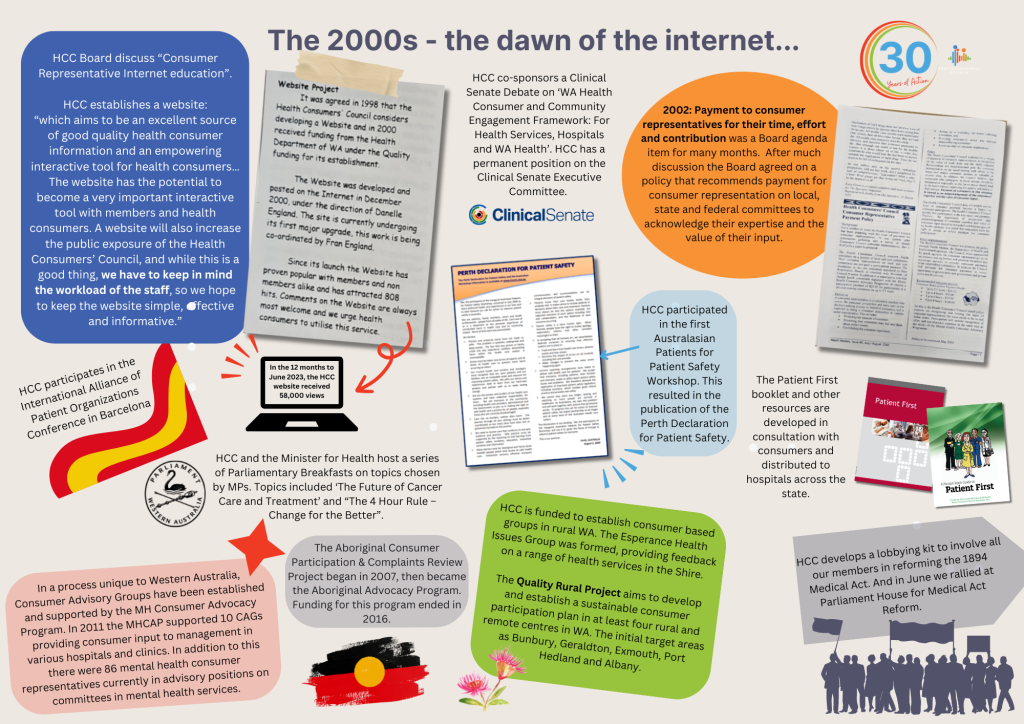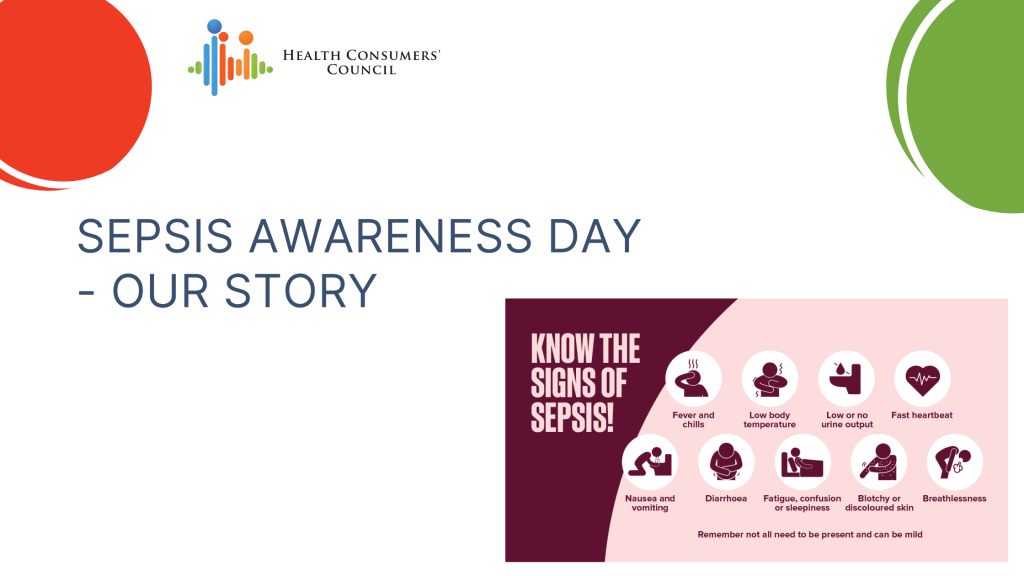Our team works hard for the people of WA, we’re passionate about making a difference in the lives of West Aussies and working hard to make patients, carers, loved ones—all health consumers—are at the centre of our healthcare system: Our health. Our voice. Our healthcare.
We’d like you to meet Chrissie, an integral part of our individual advocacy team.
How long have you worked at HCCWA
14 years on the 14th March (2025)
What inspired you to work at HCCWA?
I saw how an advocate from HCCWA advocated for someone that made a huge improvement in their life (teeth vs toothless). I thought I would like to be able to help people improve their health and life like that. The consumer’s life improved dramatically.
Describe what you do.
I advocate for people in WA who have a query, concern or communication issue with a WA health service. Sometimes it is just providing information about what a person’s rights are, what services are available,through to supporting people in appointments and meetings related to their health. I/we aim to empower health service users to be able to advocate for themselves and their family and friends, so they may have an optimal health journey.
What do you think about HCCWA and the work we do?
HCCWA is the best place I have ever worked due to the staff who I work with (and that spans a lot of years!).
The HCC team are all amazing, caring, committed people who go the extra mile to ensure that the clients or consumers that use our service, are at the forefront of everything we do. We strive to do our best to help ensure health service users rights are upheld and empower them to have an improved health journey. Keeping our staff supported is key to being the best we can for our consumers.
How do you see your work helping to improve outcomes and experiences for everyone in WA?
Each day I see the work of our team supporting WA health consumers to find out more about their rights and the services available in WA. Whether it be through engagement or advocacy, consumers will know more about what and who is available and how they might access services. Everyday I listen to consumers, assisting them to realise what is possible vs likely, providing them with tools to help them navigate the health system, or other support (referrals to other services where appropriate), enabling them to have more effective, safer and less confusing healthcare.
Ever met anyone famous?
Not for a long time but I spoke to Cat Stevens for about a minute, when he was leaving the WACA in 1970’s (I was only about 14 years old so I was in heaven for about a week after that!) and more recently, about 20 years ago, Bob Geldof came in and browsed at the antique stall I was working at in Scarborough Fair Markets.






